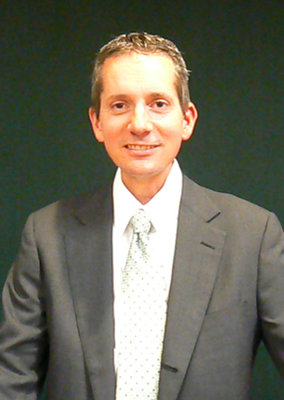Since the beginning of the year, Mayor Michael Gonnelli has given ominous signals about the state of the municipal budget. That budget determines one of the three components – municipal taxes, school taxes and county taxes – that residents pay in their quarterly tax bills.
Gonnelli recently called the Secaucus Recreation Center, which was in the red by more than $500,000 after its first year, “a problem.” Earlier this month, he mentioned that the town will get $511,000 less in state aid than last year as a result of cuts from Gov. Christopher Christie.
Three weeks ago, he said his administration had uncovered $730,000 in unpaid/uncollected fines from business owners (see the April 18, 2010 issue).
Cost savings and other revenues must be weighed against large expenditures the town will have to make.
________
Secaucus uses the calendar year as its fiscal year, rather than the July 1 through June 30 fiscal year which the state of New Jersey uses.
Gonnelli’s financial review
When Gonnelli and his allies won a majority of seats on the Town Council in November, they promised to do an exhaustive, top-to-bottom review of each municipal department to look for ways to cut spending. They also promised to reorganize the Tax Collector’s Office and reduce town spending by slashing money spent on professional service contracts, like those for lawyers and accountants.
The mayor has admitted to taking a “nickel-and-dime” approach to trimming the budget, an approach he hopes will lessen the tax burden on residents.
Trimming here and there
As previously reported, the town has awarded 15 professional service contracts since the beginning of the year, a number that’s down from the 23 that were awarded in 2009. This reduction has saved about $270,000, according to the mayor. That should put spending on professional services at about $730,000 for this year.
The town expects to see savings elsewhere, too.
Like some Meadowlands District towns, Secaucus contributes money to the state through the New Jersey Meadowlands Commission. Under district-wide tax-sharing, towns that are barred from developing environmentally sensitive areas receive money from municipalities that have been allowed to have more development. For years, Secaucus paid about $3.3 million to the district annually. But this year, the town’s payment will drop by about $300,000, according to Town Administrator David Drumeler.
Meanwhile, some revenue will increase. Now that the parking lot has opened at the Frank R. Lautenberg Rail Station, Drumeler said, “Secaucus should see about $400,000 in revenue from the parking tax.”
A local tax on each hotel room rented in town should also produce more revenue now that the economy is improving.
…and on the other side of the ledger
These cost savings and revenues, of course, must be weighed against large expenditures the town will have to make.
Health insurance premiums for municipal employees will certainly increase as they have done in other towns. Secaucus, like other employers, will have to shoulder some of these rising costs.
“We’re waiting to see final numbers on health insurance costs,” Drumeler stated. “But while a lot of municipalities are looking at 15 to 17 percent increases, we’re hoping to keep our increase at around 10 percent, which is pretty good, considering. But that will still be an increase that we’ll have to account for.”
The Secaucus Recreation Center will be another area of concern.
When first planned, the facility was expected to cost about $4.5 million to build and was supposed to be supported financially through paid memberships from town residents. The project ended up costing $12 million, paid primarily through bonds. Operating expenses for its first year were about $1 million. The center took in about $558,000 in membership dues and other revenues over the same period and would have needed more than 2,500 members just to break even. Taxpayers are currently covering most of the center’s operating expenses, in addition to interest on the bond notes. This year, Secaucus is supposed to begin paying off the principal, too.
The Secaucus Day Care Center is another facility that has lost a lot of money, according to several town officials, although the mayor has declined to say how much revenue is being lost there. The town runs the day care center without grants.
Also, Secaucus won’t be able to rely on some of the open space grants it has in the past because the town sold off some development rights to private developers last year.
Waiting game
A date has not yet been set for the council to introduce a proposed budget. Last year’s budget was $44.29 million.
“Right now, we’re wrapping up a couple things that could impact the budget,” Drumeler said. “One is obviously the tax collector investigation. I expect to have a final report on that very soon.”
The tax office has been under investigation since early last year when financial discrepancies were uncovered. Secaucus Tax Collector Alan Bartolozzi, who has been suspended without pay, was charged last fall by the Hudson County Prosecutor’s Office with two counts of theft in the second degree for allegedly stealing more than $75,000 from the office. An independent audit was launched to discover the extent of the alleged theft.
“If the number comes out where we think it will be,” Drumeler said, “that could help the budget.”
The town is also awaiting final aid numbers from the state before finalizing the municipal budget, which could also delay its introduction to the public.
E-mail E. Assata Wright at awright@hudsonreporter.com.
